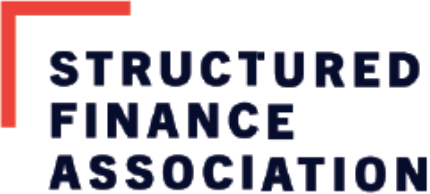Fasten Your Seatbelts: Congressional Oversight Is on the Way
Provided by Structured Finance Association
By Ben Parish and Leslie Sack
Since March 27, four congressional aid packages have appropriated $2.7 trillion of COVID-19 stimulus currently being distributed as checks to individuals, unemployment benefits to states, government-backed loans to small businesses, and emergency aid to certain industries. One consequence of Congress’ swift approval and the subsequent disbursement of funds of this size will be a heightened review the operational efficiencies of the programs through oversight, either through existing Congressional committees or newly-created oversight bodies, and – importantly – monitoring and analysis of how any financial assistance was used the help the economy. The new committees include the House Select Subcommittee on the Coronavirus and the Bicameral Congressional Oversight Commission Crisis, as well as the Pandemic Response Accountability Committee, which was created by the CARES Act to curtail waste, fraud, and abuse of taxpayer funds. Below is a brief overview of each of these oversight bodies.
House Select Subcommittee on the Coronavirus Crisis
On April 23, the House passed H.Res. 935 which established a 12 member select investigative subcommittee of the House Committee on Oversight and Reform called the Select Subcommittee on the Coronavirus Crisis. The resolution provides the Subcommittee with a broad and extensive scope of oversight authorities as well as the ability to investigate companies, grant recipients, and the Administration, with respect to matters broadly related to the pandemic. House Majority Whip Jim Clyburn (D-SC) will serve as Chairman of the Subcommittee. The remaining members of the Subcommittee include Financial Services Committee Chairwoman Maxine Waters (D-CA), House Committee on Oversight and Government Reform Committee Chairwoman Carolyn Maloney (D-NY), House Small Business Committee Chairwoman Nydia Velázquez (D-NY), Rep. Bill Foster (D-IL), Rep. Jamie Raskin (D-MD) and Rep. Andy Kim (D-NJ). Republican Reps. Greg Walden (R-OR), Patrick McHenry (R-NC), and Kevin Brady (R-TX), Ranking Members of the Energy and Commerce, Financial Services, and Ways and Means Committees respectively, raised concerns about the Subcommittee’s partisan makeup and opposed its formation.
Banking Committee Chair Coordinating Senate Oversight
Senate Majority Leader McConnell (R-KY) announced Senate Banking Committee Chairman Mike Crapo (R-ID) will coordinate the Senate’s oversight of the CARES Act stating, “the Banking Committee already has jurisdiction over the largest parts of the legislation, including economic stabilization and the Federal Reserve” and that “Chairman Crapo will also work closely with the chairs of other committees of jurisdiction as they supervise their own portions of the CARES Act.”
Bicameral Congressional Oversight Commission
The CARES Act also created a bicameral Congressional Oversight Commission composed of five Members chosen by the majority and minority leaders in both chambers. Notable Democratic appointments include Rep. Donna Shalala (D-FL), and Bharat Ramamurti, Senator Elizabeth Warren’s (D-MA) former Deputy Policy Director for Economic Policy. Republicans have appointed Senator Pat Toomey (R-PA) who serves on the Senate’s Banking, Budget and Finance Committees, and Rep. French Hill (R-AR) from the House Committee on Financial Services. The Chair of the Commission will be jointly appointed by Speaker Nancy Pelosi (D-CA) and Majority Leader McConnell with input from House Minority Leader McCarthy (R-CA) and Senate Minority Leader Chuck Schumer (D-NY). It’s worth noting that while under the CARES Act this commission is required to monthly reports starting 30 days after the first dollars went out, which would have put the first report due on May 9, the Chair has not been appointed yet. However, the other four commissioners reported “Although we will not issue a report today, we are working to fulfill our responsibilities, even in the absence of a staff, a budget and a chairperson, and intend to publish one soon.”
The Commission is responsible for submitting regular reports to Congress focusing on the following:
- the use of contracting authority under the CARES Act and the administration of the CARES Act by Treasury and the Federal Reserve;
- the impact of loans, loan guarantees, and investments on the financial well-being of U.S. citizens and the U.S. economy;
- the extent to which information made available pursuant to the CARES Act has contributed to market transparency; and
- the effectiveness of loans, loan guarantees, and investments in minimizing long-term costs to the taxpayers and maximizing the benefits for taxpayers.
This committee will be of particular importance for SFA member companies, as its mandate is to track the use of TALF funds once that program is up and running, and to monitor the use of controls by the Fed in accordance with limitations placed on any Fed 13(3) emergency action.
Oversight Within the CARES Act
The CARES Act established the Pandemic Response Accountability Committee (PRAC), which is charged with promoting transparency and conducting oversight of the funds made available under any current or future COVID-19 appropriations. The PRAC is set up under the Council of Inspectors General on Integrity and Efficiency (CIGIE) to conduct and coordinate oversight of funds and “prevent and detect fraud, waste, abuse, and mismanagement.”
While this committee is similar to the Financial Stability Oversight Board (FSOB) established in the 2008 Emergency Economic Stabilization Act, the PRAC has a significantly greater authority than the FSOB did over the Troubled Asset Relief Fund (TARP). Importantly, the PRAC has authority to subpoena documents and testimony and hold public hearings to fulfill this mandate, tools that were not made available to the FSOB.
Additional Oversight is Likely
While Congress builds out oversight committees and confirm nominees appointed to oversee the oversight bodies referred to above, a number of legislators have already engaged with administration officials to clarify congressional intent of relief legislation and begin investigating potential abuses or fraudulent actions. Recent events include:
- On April 1, House Financial Services Chairwoman Maxine Waters wrote Treasury Secretary Mnuchin and Small Business Administration Administrator Jovita Carranza stating, “any funds granted through the (Paycheck Protection) program must not be used to pay any debts or obligations to private funds, including management or consulting fees.”
- On April 15, Senator Elizabeth Warren and Rep. Katie Porter (D-CA) inquired into the role private equity firms have played in decisions made by physician practices that they own.
- On April 10, House Judiciary Committee Chairman Jerry Nadler (D-NY) and Antitrust Subcommittee Chairman David Cicilline (D-RI) requested documents from the Federal Trade Commission to investigate a ventilator manufacturer’s acquisition of a rival.
Given both the size and scope of COVID-19 relief, combined with more powerful oversight authorities in the CARES Act, we expect congressional oversight of COVID-19 related issues to become a high priority for Congress for both the remainder of this year and beyond as the economy recovers from the effects of the pandemic. On May 5, the Senate Banking Committee held a “hybrid” hearing to review the nomination of Brian Miller to serve as the Special Inspector General of the Treasury for Pandemic Recovery (SIGPR) and voted 14-11 on May 12 to report his nomination favorably to the full Senate. SFA will continue to engage with policymakers in Washington and will work to support our members as we advocate for solutions to address today’s challenges.

